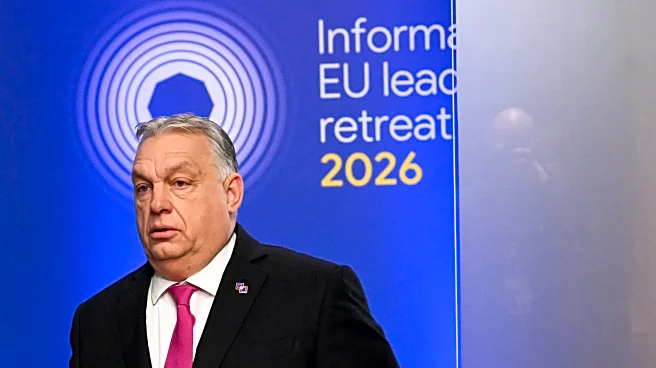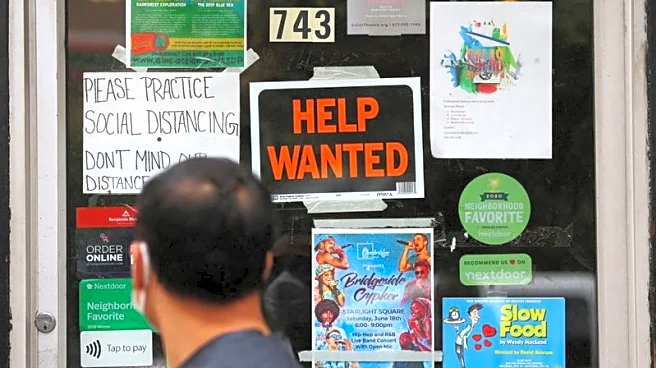What's Happening?
The Cleveland Browns are contemplating trading tight end David Njoku as the NFL trade deadline approaches on November 4. Njoku, who had a standout Pro Bowl season in 2023, has not received the same level of attention this year. Despite leading the team in targets during rookie quarterback Dillon Gabriel's first career start, Njoku's future with the Browns is uncertain. The team is focusing on Gabriel's development, emphasizing quick decisions and high-percentage passes. Njoku, currently in the final year of his contract, could be traded to teams like the San Francisco 49ers or Los Angeles Chargers, who are in need of a pass-catching tight end.
Why It's Important?
Trading David Njoku could significantly impact the Browns' offensive strategy and Gabriel's development as a quarterback. Njoku's departure would mean losing a reliable target, potentially affecting Gabriel's performance. However, the Browns are looking to get younger and cheaper, with rookie tight end Harold Fannin Jr. emerging as a promising player. The trade could also benefit Njoku, providing him with more opportunities in a team that values his skills. For teams like the 49ers and Chargers, acquiring Njoku could enhance their playoff chances by adding a proven pass-catching tight end to their roster.
What's Next?
As the trade deadline approaches, the Browns will need to decide whether to retain Njoku or trade him for future assets. The decision will likely depend on the team's long-term strategy and Gabriel's development needs. If Njoku is traded, the Browns will rely more on rookie Harold Fannin Jr. and other young players. Teams interested in Njoku will need to evaluate his fit within their offensive schemes and the potential impact on their playoff aspirations.
Beyond the Headlines
The potential trade of David Njoku highlights the Browns' strategy to rebuild with younger talent while managing salary cap constraints. It also underscores the importance of tight ends in modern NFL offenses, where they play crucial roles in both blocking and receiving. Njoku's situation reflects broader trends in the league, where teams are increasingly valuing versatility and cost-effectiveness in player contracts.












